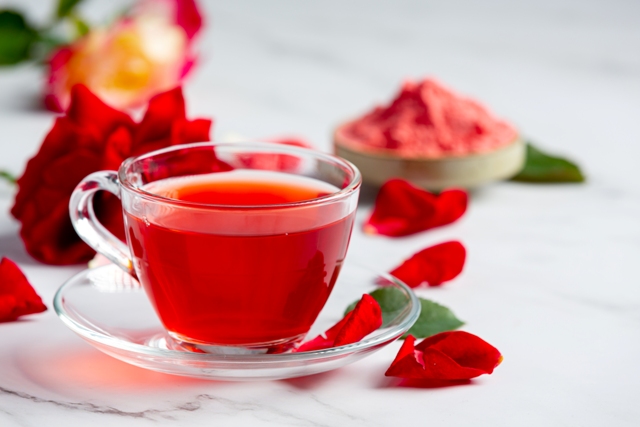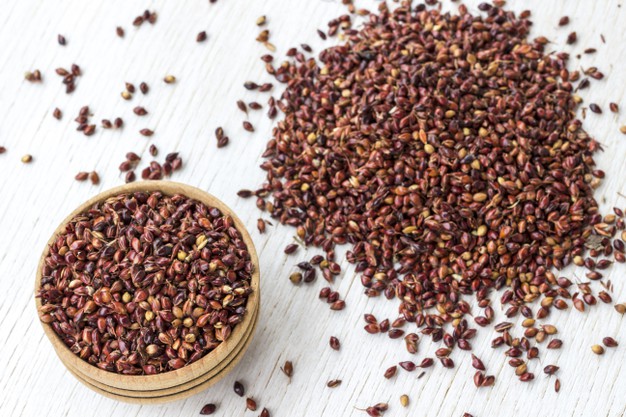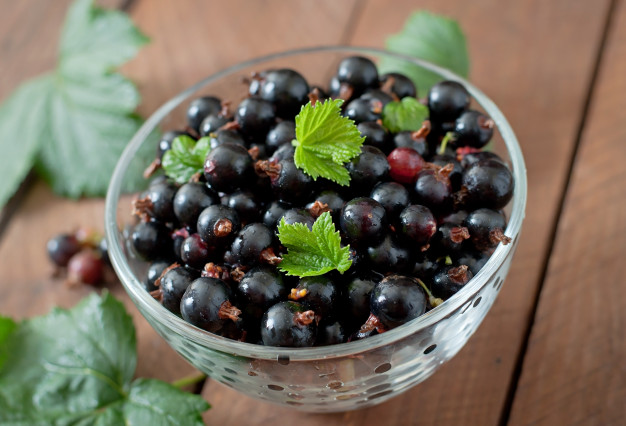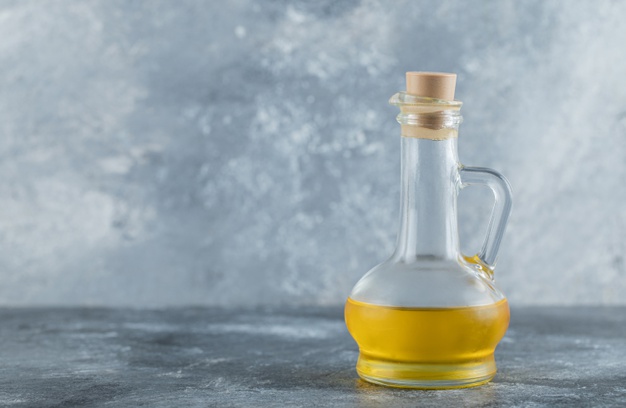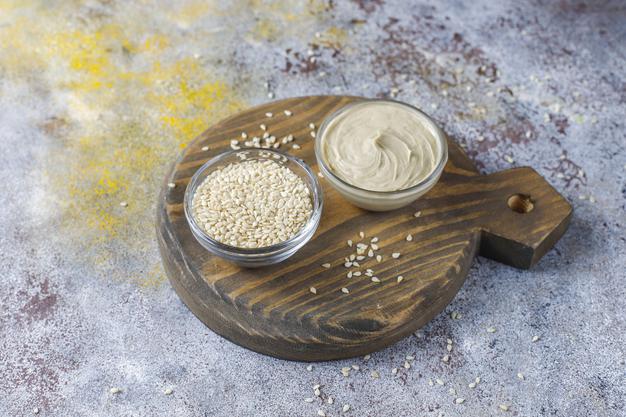Rose tea is considered as one of the healthiest herbal teas and it has been traditionally used for various therapeutic purposes. It should not be confused with rosehip tea. It is mainly prepared by mixing dried rose petals with boiling water followed by straining
Important phytochemicals of Rose tea
- It is packed with various imperative phytochemicals
- Terpenes, flavonoids, glycosides, carboxylic acids and anthocyanins are considered as the main phytochemicals present in it, which exert several nutraceutical activities. Apart from these it also contains various simple as well as complex compounds that also offer numerous health benefits
- Whereas kaempferol, myrcene, tannins, quercetin and fatty oils are also present in the flower
- Gallic acid is another important phytochemical found in rose tea and accountable for exerting powerful antioxidant activity
Biological activity
Antioxidant activity
It is loaded with antioxidants that help in neutralizing free radicals in body as a result decreases oxidative stress
Anti-inflammatory activity
Its phytochemical components are accountable for exhibiting anti-inflammatory activities that help in preventing inflammation by decreasing the concentration of inflammatory markers in body
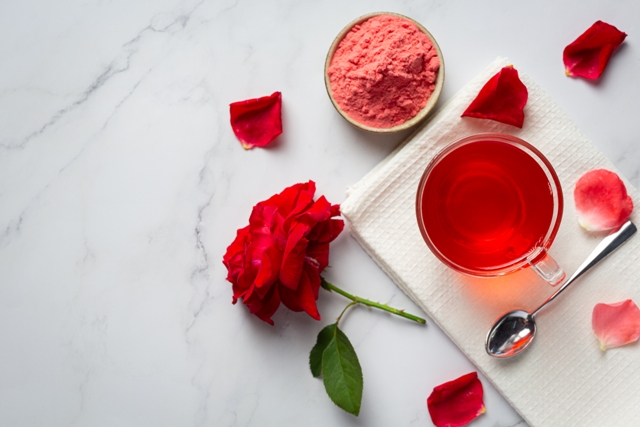
 Anti-carcinogenic activity
Anti-carcinogenic activity
- Consumption of rose tea significantly reduces the prevalence of cancers
- Its anti-mutagenic, cytotoxic and oxidative stress reducing capacity is considered as the main features accountable for exerting anti-carcinogenic activity
Antimicrobial activity
- It plays vital role in lowering the susceptibility of developing infectious diseases as it exerts potent antimicrobial activity that helps in preventing the growth and replication of microbial cells within host
- Tannins, flavonoids, carotenoids and phenolic acids components present in rose petals are accountable for exhibiting antimicrobial effects
- Rose petal, which is utilized for preparing rose tea helps to show an inhibitory effects against Escherichia coli, S. aureus, Micrococcus luteus, Klebsiella pneumonia, Bacillus subtilis, Proteus mirabilis, Pseudomonas aeruginosa
- It is very effective against yeast as well
Hypoglycemic activity
- It helps in decreasing blood sugar concentration hence reduces the prevalence of hyperglycemia
- It helps to inhibit the activity of alpha-glucosidase, a carbohydrate metabolizing enzyme, which helps to control diabetes
- It also helps to decrease the rate of glucose absorption from intestine as a result decreases postprandial blood glucose load
Hypolipidemic activity
- It plays significant role in reducing the total fat percentage of body
- It has seen that its pectin content is responsible for binding with cholesterol before it can be absorbed within the blood as a result significantly decreases blood cholesterol level

Health benefits
Role on immunity
- It is better to consume rose tea in order to strengthen the immune system
- Its micronutrients and phytonutrients components are considered as the main immune boosting components that help in promoting overall immunity of the body, which ultimately reduces the susceptibility of becoming ill
- Especially its Vitamin C component plays vital role in reducing the risk of developing infectious diseases as it helps to stimulate the synthesis of WBC in body, which is responsible for making the body able to fight against infections
Role on preventing menstrual complications
- It has been traditionally used in folk medicine for preventing menstrual cramp and all the credit goes to its anti-inflammatory activity
- It is very effective for preventing dysmenorrhea as well
- It is also associated with treating physical as well as emotional discomfort related with menstruation
- It has seen that girls who consume rose tea experience less pain and distress during menstruation
Role on digestive health
- Rose tea is considered as an important therapeutic substance for digestive health as its consumption significantly improves the functionality of overall digestive system
- It helps to stimulate bile production, which helps in fat digestion
- It is also associated with promoting the growth of microflora thus helps in improving gut health
- It exerts laxative activity too, which helps in improving bowel movement thus promotes regularity
- It is also very effective for reducing the prevalence of stomach issues


Role on mental health
- It plays significant role in preventing anxiety
- It is also very useful for reducing the stress level. Its anti-inflammatory activity helps the body to cope up with stress, whereas it helps in providing a calming effects too, which are also responsible for decreasing stress
- It helps to improve mood as well
- Its consumption is also very effective for preventing insomnia as it helps in healthy sleeping
- It also helps in preventing depression
Role on preventing arthritis
- We all know that arthritis is one of the most leading causes of disability. In severe condition it may cause permanent joint damage
- It has seen that the consumption of rose tea is very effective for treating arthritis as its anti-inflammatory activity helps in preventing joint swelling
- It also helps to protect the joint from further inflammatory damages, as a result helps in reducing the prevalence of arthritis
- It helps to reduce the pain too by exerting analgesic activity

Role on maternal health
- Many women do not like to use herbal products during gestational period but consumption of rose tea is really very beneficial
- Its Vitamin C, Vitamin B complex, Vitamin E, potassium, selenium, magnesium and manganese components play vital role in boosting up overall immunity, which ultimately help to protect both the mother and the baby
Role on preventing sore throat and flu
- Its consumption is really very helpful for soothing sore throat and it also helps to improve the symptoms of normal cold and flu
- Its Vitamin C component is responsible for accelerating the healing process thus plays vital role in improving the symptom of sore throat
- Whereas its Vitamin B1, B2, K components and phytonutrients components are responsible for boosting up the immunity of the body that ultimately help to fight against infections, which significantly reduces the prevalence of cold and flu
Role on skin
- It is loaded with vitamins and minerals, which play imperative role in making the skin healthy
- Its antioxidant activity is also responsible for reducing the risk of developing dermal disorders and prevents premature aging as well
- Especially its Vitamin E and vitamin A component help in making the skin supple and also help in improving the appearance of skin
- It helps in hydrating the skin too
- It helps to diminish dark circles
- It helps to tighten the skin as well
- It is very effective for preventing seborrheic dermatitis

Role on hair
- It plays significant role in promoting hair growth
- Its antioxidant activity is also responsible for preventing the oxidation of lipid as well as the protein of hair cells as a result helps in preventing hair damage
- It helps to reduce hair fall as well
- Phytochemicals present in rose tea help in inhibiting sebum secretion, which ultimately help to prevent oily scalp issues as well as itching
Other benefits
- It helps in weight reduction
- It helps to improve the symptoms of urinary tract infections
- It helps to prevent dizziness
- It also helps to prevent allergies
- It exerts diuretic activity as well, which helps in eliminating excess water from body
Risk factors
- Excessive consumption of rose tea may cause digestive disorders
- Individual who are on blood thinner medicines and anti-depressant medicines should avoid its consumption

Source:
Kart, D. and Çağındı, Ö., 2017. Determination of antioxidant properties of dry rose tea. International Journal of Secondary Metabolite, 4(3, Special Issue 2), pp.384-390.
Kumar, S., Gautam, S. and Sharma, A., 2013. Identification of antimutagenic properties of anthocyanins and other polyphenols from rose (Rosa centifolia) petals and tea. Journal of food science, 78(6), pp.H948-H954.
Miller, K., 2010. The Tea Rose/Rectanus Doctrine Is Alive and Well: A Case Note. J. Contemp. Legal Issues, 19, p.35.
Tseng, Y.F., Chen, C.H. and Yang, Y.H., 2005. Rose tea for relief of primary dysmenorrhea in adolescents: a randomized controlled trial in Taiwan. Journal of midwifery & women's health, 50(5), pp.e51-e57.
Williams, M. and Newswire, N.H., Rose Tea Relieves Menstrual Pain.
